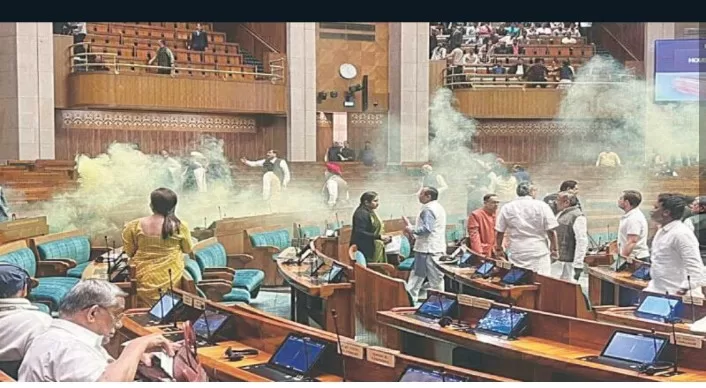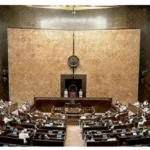In a significant development following the recent breach of security within the Parliament premises, detailed investigations have revealed that the prime conspirators behind the incident were associated with the social media page ‘Bhagat Singh Fan Club.’ The breach, which unfolded on the 22nd anniversary of the 2001 Parliament attack, saw two individuals, namely Sagar Sharma and Manoranjan D, entering the Lok Sabha chamber and releasing yellow gas canisters, causing a state of panic among the Members of Parliament.
Police sources disclosed that the accused had meticulously conducted reconnaissance outside the Parliament building prior to executing the breach. Notably, all individuals involved in the incident were found to be linked to the ‘Bhagat Singh Fan Club,’ according to detailed investigations.
The group had convened in Mysore approximately a year and a half ago, with Sagar Sharma traveling from Lucknow to join the assembly. Further details indicate that on December 10, participants from various states arrived in Delhi, where they distributed colored crackers near India Gate. During the breach, Sagar Sharma and Amol Shinde shouted slogans such as ‘Inquilab Zindabad’ and ‘Bhagat Singh Amar Rahe’ while releasing canisters within the Parliament, as reported by multiple media sources.
A revelation preceding the security breach came through an Instagram post by Sagar, where he wrote, “Jeete ya hare, par koshish to zaruri hai (Making an effort is important whether you win or lose).”
Intriguingly, a deeper dive into the social media profiles of the accused showcased their profound admiration for freedom fighters Bhagat Singh, Sukhdev Thapar, and Shivaram Rajguru. Neelam Devi, another participant in the incident, had expressed her views on women’s reservation in legislative bodies and voiced concerns about the safety of activists, exemplified by her remarks on Chandershekhar Azad.
As investigations continue to unfold, the Parliament Street police station has registered a comprehensive case under various sections of the Indian Penal Code (IPC) and the Unlawful Activities (Prevention) Act (UAPA) against the accused.







